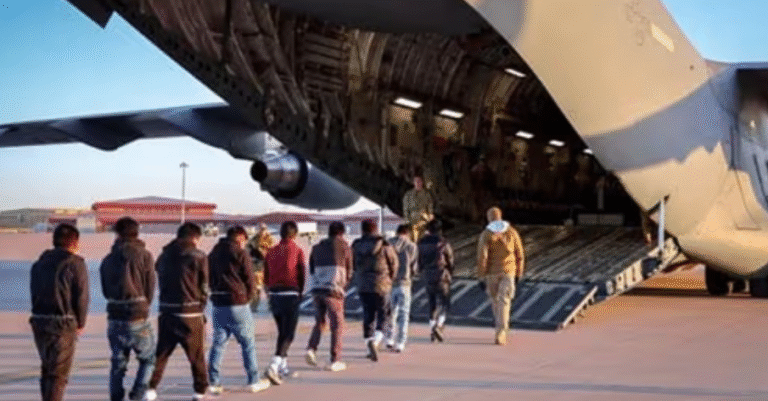Civil society group, Democracy Hub has filed a writ at the Supreme Court challenging what it describes as an “unconstitutional” Memorandum of Understanding (MoU) between the Government of Ghana and the United States of America for the reception and detention of deported West African nationals.
The group contends that the MoU — which allegedly allows the U.S. to transfer third-country nationals into Ghana for temporary detention and onward rendition — violates both Ghana’s Constitution and international human rights obligations.
The Supreme Court has fixed Wednesday, October 22, 2025, to hear an application for an interlocutory injunction seeking to halt the implementation of the agreement pending the final determination of the case.
Democracy Hub says it has brought the lawsuit under international law and Articles 2(1)(b) and 130(1) of the 1992 Constitution, seeking a series of twenty-eight (28) reliefs to affirm that the MOU violates Ghana’s Constitution and peremptory norms of international law known as jus cogens.
According to Democracy Hub, the Foreign Affairs Minister Samuel Okudzeto Ablakwa announced in September 2025 that Ghana had reached an understanding with the United States to receive and temporarily detain deported West African nationals from U.S. Immigration and Customs Enforcement (ICE) facilities.
The arrangement was said to form part of broader negotiations to lift visa sanctions imposed by United States on Ghana.
Since then, the group says 42 individuals have been “involuntarily repatriated” in three separate batches on September 6, September 19, and October 13, 2025 — and detained by Ghana Armed Forces under armed military custody at Bundase Military Training Camp.
Democracy Hub alleges that the deportees were held in “deplorable conditions for weeks without charge, without access to lawyers, and under inhumane conditions.”
Constitutional and Legal Grounds
Democracy Hub’s legal argument stems from four grounds:
Lack of Parliamentary Approval: That the MOU is unconstitutional because it was concluded and implemented without parliamentary ratification as required under Article 75(2) of the 1992 Constitution.
Violation of International Law: Democracy Hib argues that the arrangement violates Ghana’s obligations under international law, including the 1951 Refugee Convention, Convention Against Torture, and the OAU Refugee Convention, which prohibit the return or transfer of any person to a country where they risk persecution or torture (the principle of non-refoulement).
Human Rights abuse: The Groups says the use of military detention for civilians and asylum-seekers at Bundase constitutes a gross violation of Articles 14, 15, and 19 of the Constitution, which protect liberty, human dignity, and the right to a fair trial.
Complicity in Chain Refoulement: The MOU’s implementation effectively renders Ghana complicit in “chain refoulement”, a process where refugees are indirectly returned to danger through a third country, contrary to jus cogens norms – peremptory principles of international law from which no derogation is permitted.
In a statement issued on Tuesday, October 14, 2025, Democracy Hub asserted that no administration has the right to “secretly contract Ghana out of its constitutional and human rights obligations.”
“The Constitution demands transparency, parliamentary oversight, and respect for human dignity in all matters of international cooperation,” the group said. “This case is not only about the individuals affected but also about safeguarding Ghana’s democratic integrity and its standing as a rule-of-law state that upholds international human rights.”
Source:Lovinghananews.com


